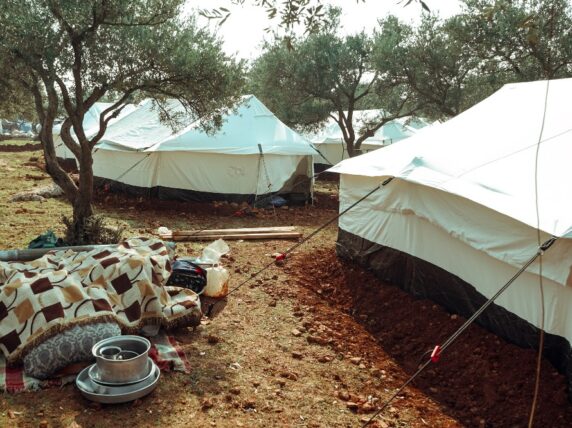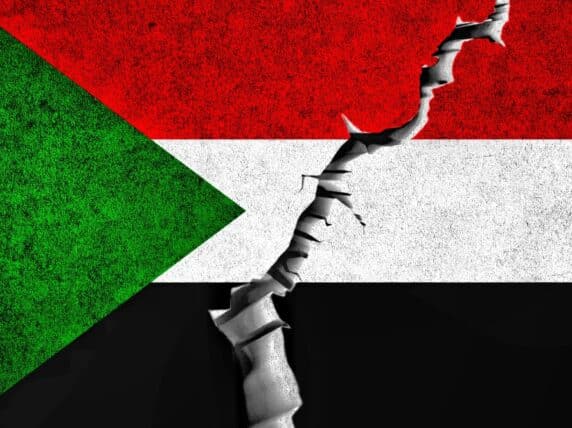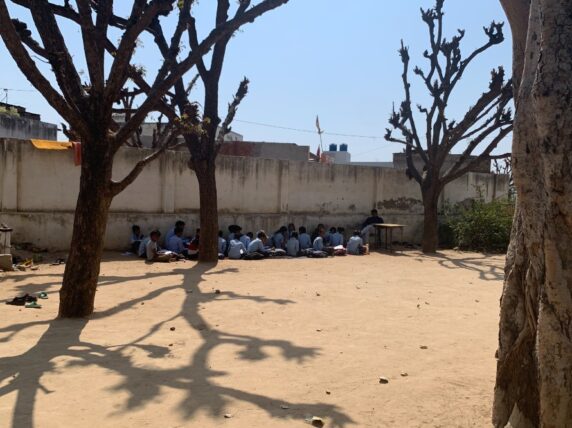Covid-19: How do we ensure women aren’t left behind?
2020 was due to be the critical year for women’s rights, with an unprecedented number of global gatherings and political milestones.
These events included the 25th anniversary of the Beijing Platform for Action, the 10th anniversary of UN Women and the UN Women’s Generation Equality Forum. These moments were important opportunities to reflect on how far we have come to deliver on our promises, and to think critically about what is needed to truly make gender equality a reality.
But all of that is on hold, while Covid-19 leaves the limited progress we’ve made hanging in the balance.
The pandemic is amplifying inequalities and exacerbating violence, insecurity and poverty. And women and girls living in conflict – those who already tend to be unheard and unseen – are being disproportionately impacted. This is exactly what I am hearing from my colleagues on the frontlines of responding to Covid-19 in some of the most challenging contexts around the world.
Women and girls living in conflict are disproportionately impacted
Globally, women perform 76.2% of unpaid care work, putting them on the frontlines of prevention and treatment of Covid-19 within their households and communities, and making them more susceptible to infection and illness. Women experiencing poverty, fragility and displacement are even less able to avoid crowded spaces and face increased exposure – for example, there are 40 people per 1,000 metres squared in Cox’s Bazar in Bangladesh.
This increased exposure leaves women worrying about their ability to access clinics and hospitals should they need to, since conflict has already decimated healthcare systems. Health spending in the Democratic Republic of Congo (DRC) is just $32 per capita, compared to over $3,300 per capita in the UK.
And as the poorest countries are forced to divert scarce medical resources to respond to Covid-19, women will be among the first to suffer from gaps in the other vital services, particularly life-saving sexual and reproductive health services.
Covid-19 is an economic and humanitarian crisis, as well as a health one. Women’s livelihoods are being severely impacted by the pandemic’s economic shocks in settings that lack resilient financial systems, governments and social safety nets. Women are being forced to make difficult decisions about how to use their limited resources, while facing food insecurity and violence due to rising tensions in the household.
Subscribe to our newsletter
Our weekly email newsletter, Network News, is an indispensable weekly digest of the latest updates on funding, jobs, resources, news and learning opportunities in the international development sector.
Get Network NewsWomen living in conflict are experiencing all of this in addition to the existing challenges they faced before Covid-19 – in contexts where the effects of existing gender inequality, marginalisation and poverty were already devastating. Covid-19 threatens to exacerbate these challenges.
Evidence across sectors also demonstrates that women are already being excluded from the decision-making processes around the pandemic, despite their active participation in the response itself. This is happening at all levels, from local to global. Women living in the most vulnerable communities know what is needed to respond and rebuild with more resilience. Any response that does not meaningfully engage them as experts is sure to fail.
A coordinated and inclusive global response with gender at its core
The specific needs and rights of the most marginalised women in conflict have been consistently forgotten by the international community. The same cannot be the case with Covid-19.
We urgently need an approach to this global pandemic that is coordinated, inclusive and puts gender at its core. Decision-makers must:
- respond in a nuanced way that truly accounts for the specific realities that different women in diverse contexts face, rather than treating them as a homogeneous group
- take a holistic approach to women’s needs during this crisis, recognising that health, food security, economic power and safety are all interlinked
- work alongside women and women’s rights organisations, at all levels, both during and beyond the crisis
- prioritise violence prevention and recovery, acknowledging the increased risk of violence that women face, particularly from intimate partners, during times of crisis
- proactively consider women’s economic rights, in the immediate and longer-term.
2020 is still a critical year for gender equality – but only if we redouble our efforts. We need to turn the momentum around the key political moments and milestones into tangible action. The Covid-19 response must not leave women in conflict even further behind.
Category
News & Views



